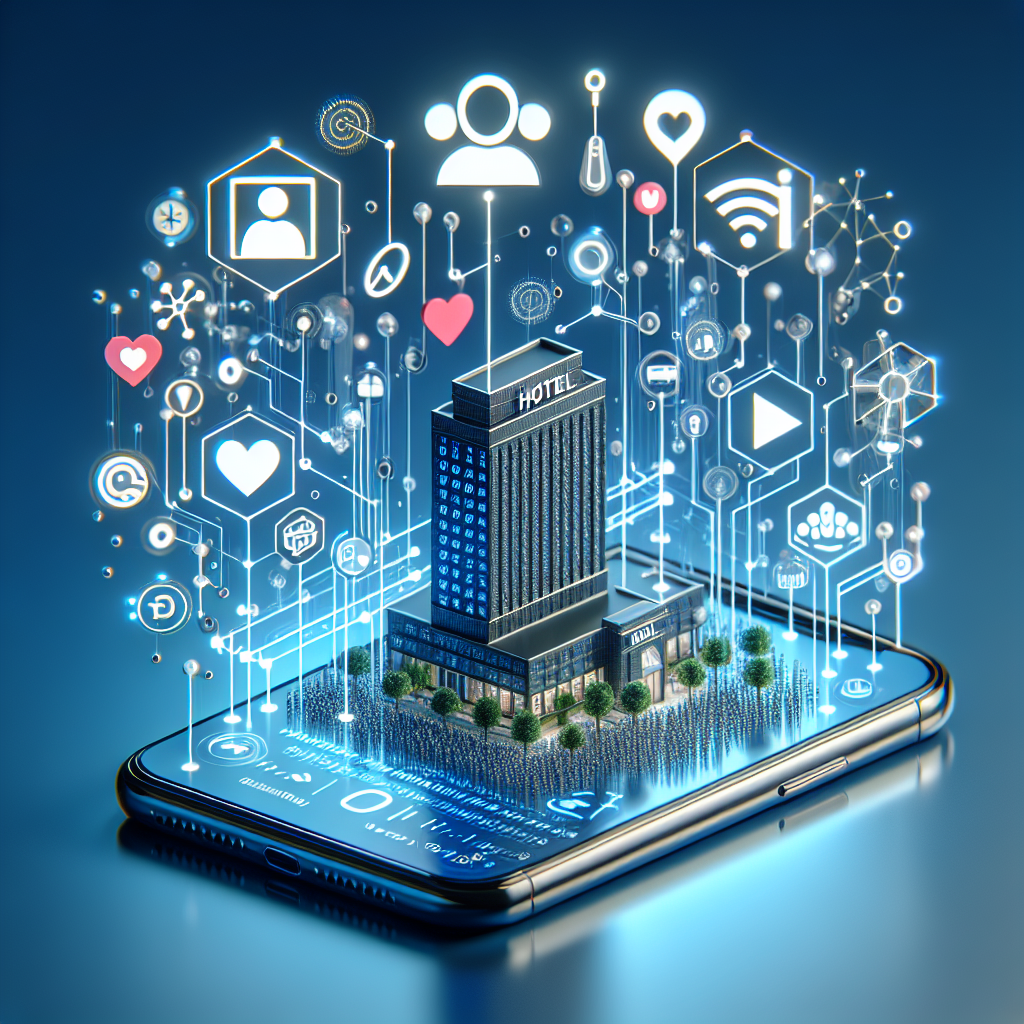The hospitality industry is constantly evolving, and with the rise of social media, it has become more important than ever for businesses in this sector to engage with their customers online. Artificial intelligence (AI) is playing a significant role in helping hospitality businesses create effective social media engagement strategies that can drive customer loyalty and increase brand awareness.
AI-driven social media engagement strategies are becoming increasingly popular in the hospitality industry, as they allow businesses to personalize their interactions with customers, predict trends, and measure the impact of their social media campaigns more effectively. In this article, we will explore some of the key AI-driven social media engagement strategies that can benefit businesses in the hospitality industry.
1. Personalized Recommendations
One of the key advantages of AI-driven social media engagement strategies is the ability to provide personalized recommendations to customers. By analyzing customer data, AI algorithms can identify the preferences and interests of individual customers and tailor recommendations to their specific needs. This can help businesses in the hospitality industry to create more targeted social media campaigns that are more likely to resonate with their target audience.
For example, a hotel could use AI algorithms to analyze customer data and identify customers who have previously shown an interest in spa services. The hotel could then create targeted social media ads promoting their spa services to these customers, increasing the likelihood that they will engage with the campaign and make a booking.
2. Predictive Analytics
AI-driven social media engagement strategies can also help businesses in the hospitality industry to predict trends and identify opportunities for growth. By analyzing social media data and customer behavior, AI algorithms can identify patterns and trends that businesses can use to inform their marketing strategies.
For example, a restaurant could use AI algorithms to analyze social media data and identify trends in customer preferences for certain types of cuisine. The restaurant could then use this information to create targeted social media campaigns promoting their most popular dishes, increasing the likelihood that customers will engage with the campaign and make a reservation.
3. Chatbots
Chatbots are another AI-driven social media engagement strategy that can benefit businesses in the hospitality industry. Chatbots are automated messaging systems that can interact with customers in real-time, providing them with information, answering questions, and even making bookings or reservations.
For example, a hotel could use a chatbot on their social media accounts to answer customer queries about room availability, pricing, or amenities. This can help to improve customer service, increase engagement, and drive bookings.
4. Social Listening
AI-driven social media engagement strategies can also help businesses in the hospitality industry to monitor and analyze social media conversations about their brand. By using AI algorithms to analyze social media data, businesses can identify trends, sentiment, and feedback from customers, allowing them to make more informed decisions about their marketing strategies.
For example, a hotel could use AI algorithms to monitor social media conversations about their brand and identify any negative feedback or complaints from customers. The hotel could then use this information to address the issues raised by customers, improving customer satisfaction and loyalty.
5. Automated Content Creation
AI-driven social media engagement strategies can also help businesses in the hospitality industry to create and distribute content more efficiently. By using AI algorithms to analyze customer data and trends, businesses can generate personalized content that is more likely to resonate with their target audience.
For example, a restaurant could use AI algorithms to analyze customer data and identify trends in customer preferences for certain types of cuisine. The restaurant could then use this information to create personalized social media posts promoting their most popular dishes, increasing the likelihood that customers will engage with the content and make a reservation.
FAQs:
Q: How can AI-driven social media engagement strategies benefit businesses in the hospitality industry?
A: AI-driven social media engagement strategies can benefit businesses in the hospitality industry by providing personalized recommendations, predicting trends, improving customer service through chatbots, monitoring social media conversations, and automating content creation.
Q: What are some examples of AI-driven social media engagement strategies in the hospitality industry?
A: Some examples of AI-driven social media engagement strategies in the hospitality industry include personalized recommendations, predictive analytics, chatbots, social listening, and automated content creation.
Q: How can businesses in the hospitality industry implement AI-driven social media engagement strategies?
A: Businesses in the hospitality industry can implement AI-driven social media engagement strategies by investing in AI technology, analyzing customer data, and using AI algorithms to personalize interactions with customers, predict trends, and improve customer service.
In conclusion, AI-driven social media engagement strategies are becoming increasingly important for businesses in the hospitality industry. By leveraging AI technology to personalize interactions with customers, predict trends, improve customer service, monitor social media conversations, and automate content creation, businesses in the hospitality industry can create more effective social media campaigns that drive customer loyalty and increase brand awareness.

